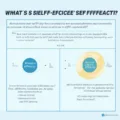Introduction
Compassion fatigue can affect anyone in a caring profession. As we nurture others, it’s vital we also nurture ourselves. This article gently explores compassion fatigue assessments not as an optimization exercise, but as an act of self-care to promote personal and professional wellbeing.
What is Compassion Fatigue?
Compassion fatigue refers to the emotional, mental, and physical exhaustion that can develop from chronic exposure to others’ trauma while caregiving. Symptoms may include:
- Physical ailments
- Anxiety, sadness
- Reduced ability to feel sympathy and empathy
- Apathy, isolation
Caregivers experiencing compassion fatigue often have difficulty providing consistent, quality care. Self-assessment tools can help us tune into signs before we’re overwhelmed.
Why Assess for Compassion Fatigue?
Checking in with oneself through assessments can:
- Alert us to emerging symptoms so we can address them proactively with self-care practices
- Provide validation by affirming our experiences are recognized phenomena
- Guide conversations with colleagues and supervisors regarding workload and wellbeing considerations
Rather than viewing assessments as pass or fail evaluations, we can approach them as opportunities to cultivate self-awareness and reinforce that our wellbeing matters.
Compassion Fatigue Self-Tests
1. Professional Quality of Life Scale (ProQOL)
The ProQOL measure explores compassion satisfaction and compassion fatigue through 30 questions on a 5-point scale.
It takes around 5-10 minutes and generates info to help individuals consider positive and concerning trends influencing their quality of life as caregivers.
2. Self-Test for Helpers
This self-test includes 40 statements caregivers rate according to frequency from “Never” to “Very Often.”
It highlights risk levels in areas like depression, anxiety, traumatic stress, and sleep difficulties. It takes 10-15 minutes.
3. Life-Work Pulse
The Lifework Pulse is a quick, free monthly newsletter providing education, inspiration, and research on compassion fatigue topics like burnout, stress-management, work-life balance for people in helping professions.
4. Relational Capacity Index (RCI)
The RCI helps caregivers assess relational abilities and challenges over the past month across 20 items.
It measures relational functioning critical for quality, compassionate care.
5. Self-Care Assessment
This informal tool helps determine strengths and growth areas across physical, psychological/emotional, spiritual, work, and relational self-care domains through checklist format.
It takes ~5 minutes and can motivate self-care goal-setting.
Should I Take an Assessment?
Participating in occasional informal self-assessments can enhance self-awareness regarding personal and professional wellbeing status.
However, experiencing ongoing distress may warrant prioritizing less structured self-reflection or seeking supportive resources.
FAQ
What’s the difference between burnout and compassion fatigue?
While the terms are sometimes used interchangeably, compassion fatigue refers specifically to absorption of others’ suffering while caregiving. Burnout refers more broadly to emotional exhaustion from occupational stress.
What if my assessment score seems concerning?
If your self-assessment results are troubling, consider speaking with a counselor or trusted advisor. Creating an intentional self-care plan could also help.
How often should I take a compassion fatigue assessment?
Checking in through occasional informal assessments can be worthwhile, but feeling compelled to frequently monitor for deficiencies can increase anxiety. Proceed mindfully and seek support if you have concerns.
What’s the easiest compassion fatigue self-test?
The Self-Care Assessment is simplest, with a quick checklist format prompting reflection on self-care engagement across life domains. Lifework Pulse also provides free, regular education.
Who is at risk for developing compassion fatigue?
Anyone working consistently with suffering individuals or traumatic situations could develop compassion fatigue over time without proper support and self-care.









